By Kalsang Rinchen
Around 80000 Tibetans living in exile around the world will participate in a historic election on January 3, 2021. The air is tense. Supporters are exchanging posters, pamphlets, and messages to campaign for their candidate. But before talking about all it, I felt it important to tell you who I am as many might wonder why they should believe me. My name is Kalsang Rinchen, and this is not some kind of endorsement for a particular candidate because I am a journalist, and respect my own credibility and the media house for which I worked. I have studied journalism as a post graduation course, and I have held the editor’s post of the official website of the Central Tibetan Administration as well as the first ever independent English language news portal phayul.com, with a total of twenty odd years covering Tibet and Tibetan politics. I am not the editor who writes editorials with opinions at regular intervals but somebody who just decodes the message for his audience, and leaves it for them to make their own opinion. Many of today’s media tell their audiences what to think of an issue which is not my kind of journalism. My priority has always been to report the truth at it is, and not express my own opinion upon any matter, be it religion, politics, or anything for that matter. That is what I always told my reporters.
Coming back to the election, a record number of candidates including a former woman minister are vying for the top political post of the Tibetan polity.
There are many loopholes in the Tibetan electoral system which the new parliament must review and discuss with the primary motive of increasing voter participation. The case in point is the preliminary elections. The cost of conducting an election in Tibetan Diaspora is approximately 2200000 (twenty-two lakh) to 2600000 (twenty-six lakh) Rupees, which is a good amount of money for an administration that is reliant heavily on foreign aid to waste. There have been many amendments in the electoral rules and regulations over the past several years in the Tibetan parliament. The current restrictions regarding organizational endorsement of candidates, for example, is a product of the incumbent parliament. The members of the parliament might have had positive intentions in passing that bill but I found that as typical Tibetan way of dealing with problems, which is to “cut, cancel, revoke, withdraw” when faced with a problem, instead of tackling it with new ideas. So I gave a thought to why has it been like this for years. And this is not just in Central Tibetan Administration but in many of our institutes. What do we do when we face a problem or an issue somewhere? We tend to immediately terminate it without considering the consequences for the long run. In the last elections, many Tibetan NGOs endorsed candidates to the Sikyong’s post and legislator’s post. I don’t know which experiment did they use to find out or assume that the conflicts and disunity among the Tibetans was due to those endorsements from the NGOs. Could it be that those lawmakers who voted in favor of it saw a possibility that the NGOs’ endorsements could influence the voters to vote for a certain candidate? I don’t know. My point was to emphasize on this very mentality in us, to immediately cancel or terminate something because the willingness to tackle the issue and find an alternative is lacking. And also, I found it a bit strange to be witnessing the Tibetan members of parliament voting for or against a bill that would decide their own electoral fate in the future.
I am concerned that a good number of votes will likely go waste given the current scenario because of the electoral system that leaves it totally upon the voter, including those illiterate, to write down names of ten people including two women at least, most of whom he has never seen in life, with their native places in Tibet, current residences and profession. Would not it be possible to have all candidates to the parliament declare their candidacy officially to the Election Commission by a certain date ahead of the actual poll and create a list of all candidates of respective regions with pictures and election signs? One might say since this is preliminary it is not that significant. It is as important and crucial for both the voters and the candidates as the final elections. Of course, there is not much the EC can do regarding this because that will involve an extra cost, and require prior budget approval from the parliament, which is out of question at this time.
Much of the discord and disunity that we often talk about on social networking sites and elsewhere come from the fact that most people, not all, comment without knowing the ground realities like the one above. The parliament allocates budget to the Kashag which sees to it that the project for which it was approved is completed efficiently. Even if a Sikyong promises future economic projects or schemes, the budget for it has to be approved by the parliament. There is no other channel to do so without passing through the parliament. So I wonder when I hear people say there is a lot of corruption in CTA. One thing I can assure you is, as far as money is concerned, corruption is almost non existent within the CTA and all its branches, not just during the current Kashag but previous ones also. The Audit department of CTA is independent of the Kashag and grills it wholeheartedly upon discrepancies in audit findings. So if you hear things like this, don’t believe it.
The last few years had seen so much discord and disunity among the Tibetans, so much so that His Holiness had to express his disappointment publicly in the presence of top brass of the CTA in 2016.
Let’s break down this whole “doktsa chikdril” thing. We hear people talk about restoring unity among Tibetans but do we really understand what causes that? Differences of opinion is not disunity as many seem to think these days. Did you ever try going deep into the possible causes of it all? Much of the conflicts were conceived on the social media, where maintaining anonymity is easy. Comments and posts by headless people are not only believed easily by our public but also forwarded with confidence of a BBC journalist by our fellow Tibetans, most of whom flaunt the latest I-phone and gadgets.
Media is often called the fourth estate or the fourth pillar of democracy. However, is it also true of Tibetan media? I doubt. Objectivity in reporting, a basic in journalism, is lacking in the Tibetan media who don’t question the claims made by the administration or anyone but reproduces them as presented to them.
Voice of America, Radio Free Asia and Voice of Tibet form a major source of news and information for Tibetans in exile, especially those outside the social networking realm. And almost all media houses, not just these three, have come under criticism for partiality at one point or the other in their years of operation. I don’t know how true they are but one thing I know is that media could have played a much bigger role had it so desired because many of the controversies and issues stemmed from misinformation. The public is intoxicated by professors of Whatsapp university and Facebook, and self appointed analysts, headquartered in New York, the epicenter of Tibetan discord. A blanket of sorts is formed in the minds of the Tibetan people because they hear allegations and counter allegations but no findings or conclusions because media has not helped the public clear that fog about issues in their minds. So is the media to be blamed then? Partly yes, me included. The editors and reporters are all Tibetans who have gone through the similar upbringing and socio political backgrounds. They have families too like the rest of you. They too would not want to get death threats for publishing a story. Don’t we have such elements in our society? We do. Supporters of one individual accuse a media house of partiality while their opponents accuse the same media house of discrimination.
The Tibetan Media has also evolved over time. There was a time when one would get to read only about religion, politics, entertainment and culture in almost every media outlet. But no one would report a crime – a rape or a theft. It was phayul.com that broke the story of a rape of a minor girl, and was followed by a few other such reports. Then the Tibetan public was treated to a kind of “crime news report sensitization”. So today, if you read about a rape in the Tibetan community you have better absorption capabilities of it as a news. Nobody talked about the bad things before that. I tried. We reported the first story on burglary at Department of Education of the Central Tibetan Administration at night. To cut things short, I tried to highlight the bad things about the society as well as the good things as a journalist. I learned that from His Holiness who at a gathering in Mundgod a few years said that we did not need to talk about our own achievements much, but rather point our flaws and evaluate, transform, and produce results instead of fancy celebrations. I say this not to brag about my work as a journalist but to inform those people who might think I am ‘fat-mouthing’, to use a typical Tibetan phrase.
You may have noticed there have been innumerable clarifications on various issues from different institutes, individuals, schools, monasteries, Tibetan associations etc. in the Tibetan community, especially on Facebook. Let’s dismantle the chain. What leads to them having to clarify? Because there have been allegations against them on social media from some random people. Today, everybody has a very powerful tool with them, which was non existent before the invent of cellphones. Today, every individual with the smartphone owns a virtual TV channel. So Media has an even more challenging role because now there is a possibility of misinformation as sources are too many. In the Tibetan case, what was missing in the puzzle was the Media, which in my understanding, should be clearing the doubts created in the public’s mind by those random people. Since there was a void from the Media’s side, we had already formed a perfect battleground for petty politics and internal fighting.
If you want another example of how serious the situation is, I will give an example of the collective stupidity and foolishness of us Tibetans. The Tibet Support bill was recently passed and signed. Isn’t it great news for everybody? Instead of collectively rejoicing and congratulating ourselves, we took to the social media, the favorite source of information of many Tibetans, to discredit the current Sikyong who often is accused of taking credit for everything, even when it is not due. It is a known fact that Sikyong Lobsang Sangay likes to appear on TV or in the news and talk about Kashag and his accomplishments whenever he gets an opportunity. Even if he is overdoing it, should it be placed above national interest? Is it harmful for the Tibetan cause? The incumbent Sikyong has addressed more press conferences than all the previous Kashags combined. Everything that the Kashag did was preceded by a press conferences, press statements, and never without the latest cameras and streaming equipment. So he likes publicity and attention. No marks for guessing that. I am not defending the Sikyong or criticizing him, but simply stating what is already there. However, I won’t be surprised if the same elements tomorrow accuse me of being biased. There will be some people or elements in the society who will never be happy even at the biggest achievement for CTA and the Tibetan people.
My point was to bring the attention of the Tibetan people back to the larger Tibetan cause and the movement, instead of fighting amongst each other due to differences of opinion on the righteousness of individuals and their actions. In all the cross firings that took place, it was the honor of the Central Tibetan Administration that was hurt. Politicians and leaders come and go but CTA or the administration has to stay. Therefore, the honor of CTA must be protected at all times, it belongs to the six million Tibetans.
So my countrymen, as you go to vote remember that your vote will decide the future of Tibet and Tibet movement. Your vote is a component in the new operating system to be installed in the Central Tibetan Administration and the entire Tibet movement if they were computers. Choose the correct processor and parts. You can’t format the system until the next five years. So don’t let it crash!
(Views expressed are his own)
The author is a former editor of phayul.com, Tibet.net and an independent filmmaker based in New York. He has covered Tibet and Tibetan politics from 2000 -2020.


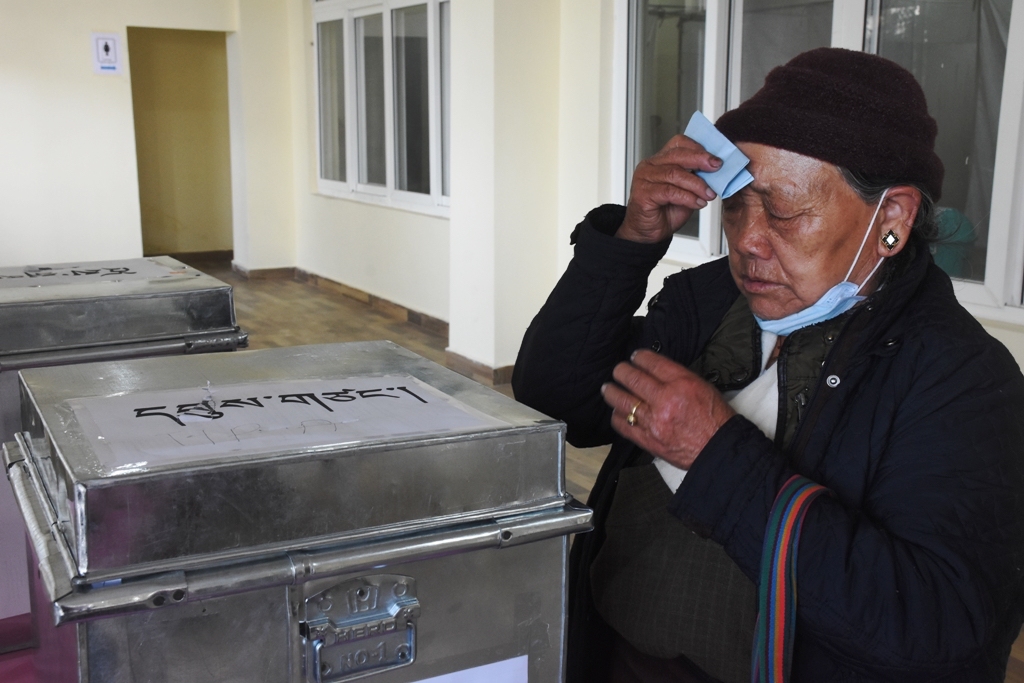




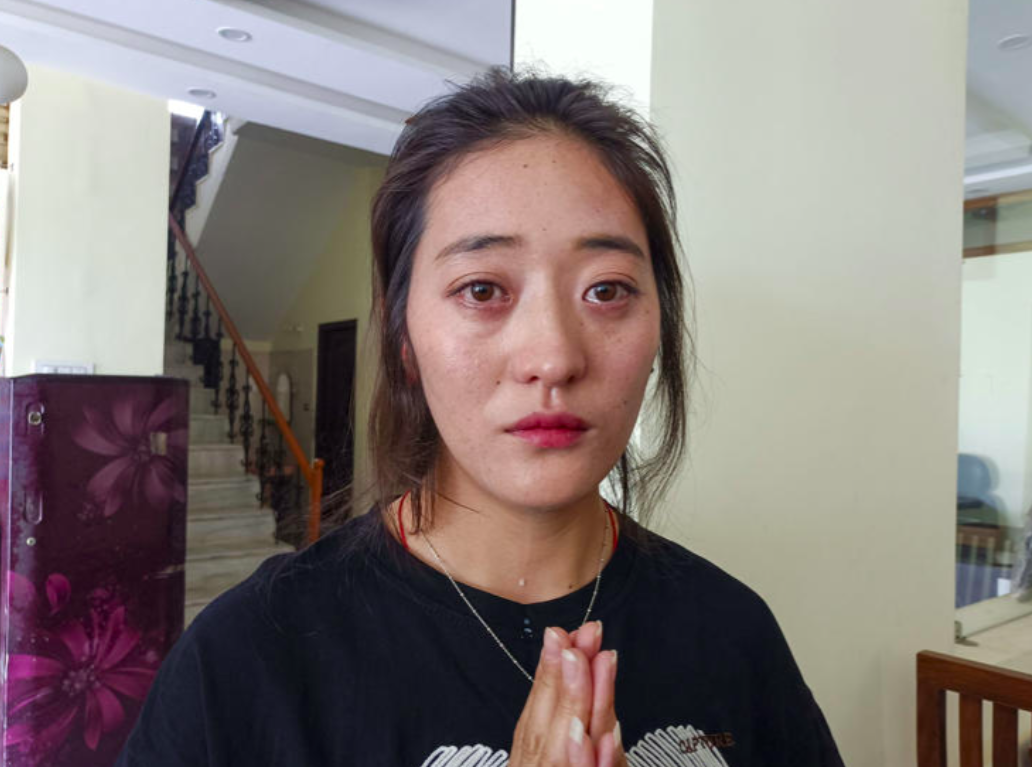
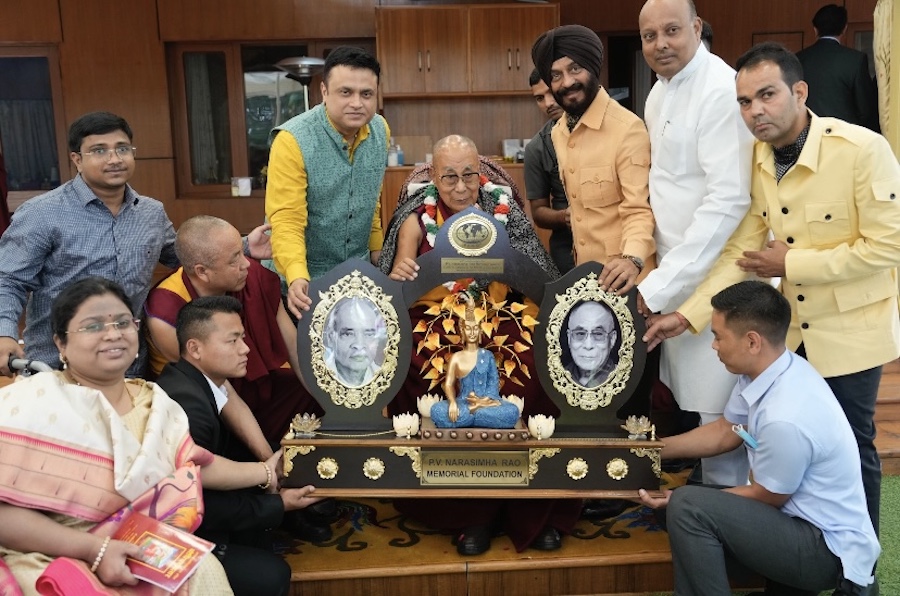
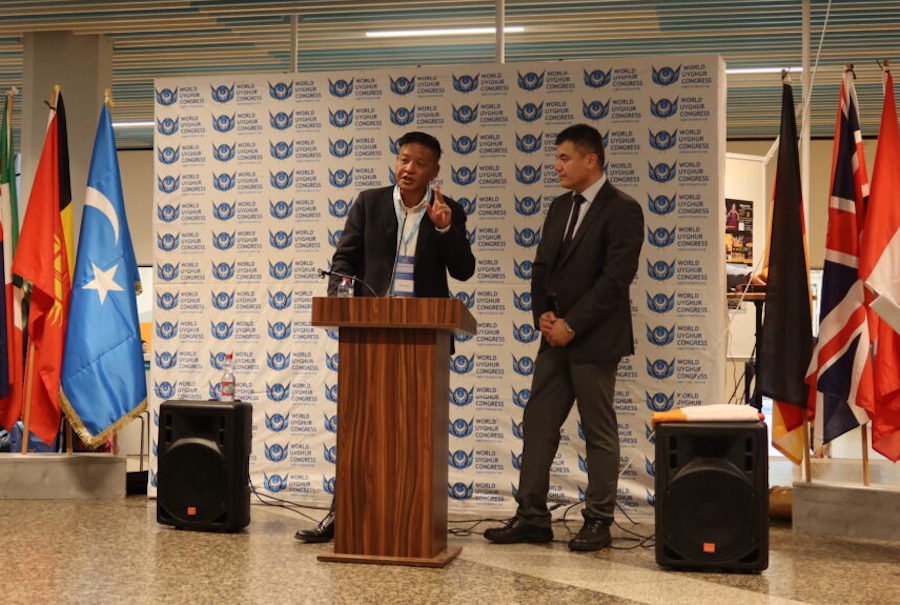
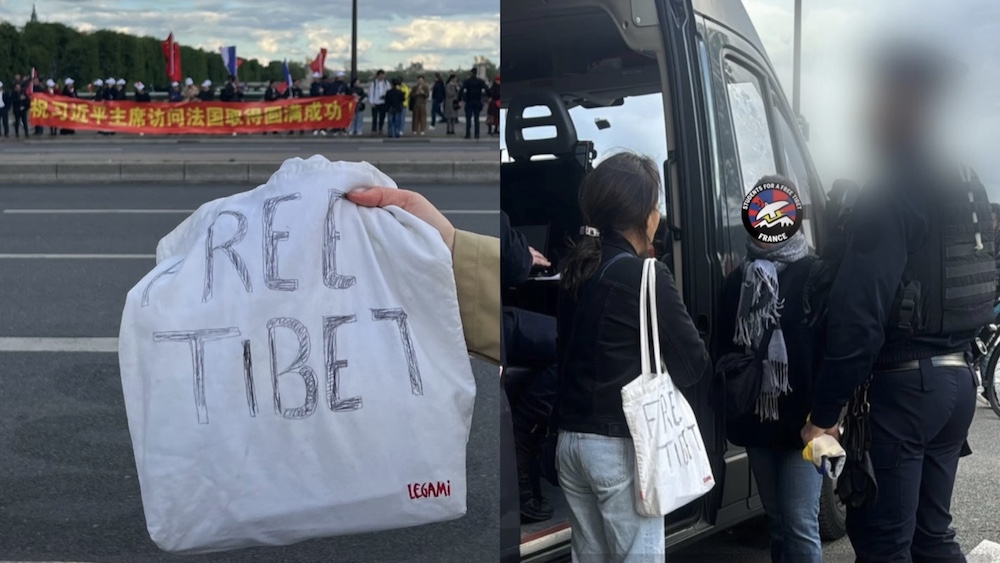
11 Responses
Lets share our ideas and aspirations with civility and respect. Our new Sekhung has many challenges & opportunities. We can not waste our time thinking about Cholkas. choslug or regionalism, which by way, resulted in lost opportunities in the past. With second and third generations of tibetan youths, it is sad to see the sins of past is still existing. Did we fail this in our public education system? Youths of today must reject these senseless divisions practiced by elders, because His Holiness gave you the gift of modern education. You have chance to lead and steer our struggles into new directions.
Elections have consequences. Vote for the best candidates according to your conscience. Judge. Do not succumb to division mongers. Show your true color.
In my view, our election process and parliamentary system needs a big haul. The system that we have in place is old; it was definitely a well-thought at the time to have representation based on region and religion. But time has changed; we are more experienced with our system. So, a systematic change is require to get out from regionalism which is one of the biggest flaw in our society. Though our population is small, we should definitely plan for a party system democratic parliament – definitely not a multi-party but a two-party system; where the elected majority party will form the government and other will represent as an opposition party in the parliament.
It seems lessons from the Noodlemaker didn’t quite reach the ears of Harvard educated Sangay? Representing the needs of Tibetans in Tibet require a level of transparency that perhaps a US passport holder can not deliver? Russians got rid of the Chernobyl disaster by allowing Ukraine to become an independent country. Now clean-up is a NATO headache. Things aren’t quite as clear cut following Fukushima. However, if that plant had been in Okinawa or the Kuril’s, perhaps things are different? Siachen Glacier, Doklam and Mustang it would seem are much more complicated than at first glance? And how to bridge between third generation Tibetans in India versus the Tibetans married to Hans or other ethnic minorities in southwestern China. Quite the bull in the China shop scenario. Following major displacement of the Ashkenazi population following WWII, how many were able to return? How many integrated into the culture of where they migrated? And how many chose to erase the horrors of their experience completely with a new identity that they kept secret from their own families and descendants. Don’t repeat history. Don’t become a pawn in the geopolitical game.
It is unbelievable that you call yourself a former journalist. A long article which in the end says pretty much says nothing. What is the first rule of writing? Write economically. Where you can make do with one word instead of three, choose former. Be specific. So I get three things from your article:
1. Tibetan media has failed disastrously during this election period. Totally agree. But where are the specifics? In what areas did they fail, where could have they done better? In my opinion it is fact checking where the media failed the most. Candidates like Kaydor went crazy taking personal credit for every positive initiative by CTA. Did anyone do fact checking? There were allegations of his not having been transparent money-wise in his past experience, which, in any other country, would be an item for huge uproar. What did our media do? Nothing. Did anyone investigate the $80K or more he was paid to transfer to Dharamsala by this foundation to work as Advisor for Sikyong? This constituted conflict of interest big time, bringing with it huge issues of illegality. Who talked about these things. No one. And people blame Youtubers like Thupten Thokmay’s videos going viral. Of course they would. Where media is silent these outfits gather strength and credibility. Kalsang Rinchen, you ought to be specific: where did media fail?
2. Phayul did great by reporting rape and burglary. You joking right, those were your bare minimum responsibilities, not something worthy of applause from readers. Phayul was and is relevant because of the power of the internet not because of a special kind of journalism you follow. In terms of journalism, you guys should be ashamed seeing how Tibetan Review braved criticisms and death threats by following the truths. Don’t pat yourself for your rape reports. And you say you get death threats? Everyone gets death threat if you speak up. That is the nature of your business. If you don’t want death threats, go work behind counters in a cafe. Even there you get death threats from crazy people sometimes. To say our media do not speak up because of death threats is laughable. I am sure late Editor of Tibetan Review is laughing.
3. You then try to defend Sikyong’s habit of self aggrandizement and taking credit. True media work involves exposing that sort of narcissism which often involve a lot of lies and fabrication. If you dug deeper you will see with each credit he takes he is fabricating the whole story about the particular campaign. Did you try to write anything about his effort to undermine ICT, Gyari Rinpoche, and the fact that this bill is not new but a reiteration of the one from 2012? Whose work is it to do these work? Of course media’s and since you guys failed big time there is this big disunity among people. Sheer confusion perpetrated by Sikyong and his cronies.
There you go. A lesson in writing if you will. Write about specifics. Don’t take credit for reporting about rape and burglary. If you didn’t do that what would you guys have done in your office? Play gali danda?
Hi Tashi Gyatso, stop disguising. Reveal yourself. You are so critical of Lobsang Sangay and now Kaydor. For that, you are attacking Kelsang Rinchen. I know Tibetan media is still growing but for sure, Kalsang Rinchen is one of the few professional and trained journalists in our community. Respect his unbiased and journalistic takes on our election and election process, and his journalistic contribution to the society.
I am a fan of Penpa Tsering, but I hate seeing ‘educated’ people like you guys acting so low and critical of our own Sikyong and his allies. The general public has mixed feelings about Lobsang Sangay and his achievements as our Sikyong but overall, no other Sikyong has done better than him and hardly anyone can do so even in near future. Kador is now runner up to the post and from his strategies of winning such amount of vote number itself speaks that he is worth of the post. We need someone who is strategic and doer. At least, respect the public’s choice at the end. Remeber, majority rules in a democratic community.
Since the complete devolution of power by the H H, we have a great ride in the past decade when the scholar from Harvard took the leadership. H H had a great night sleep and dream, at least in the beginning. The public felt relief because H H was gratified with the full retirement. We are bracing for yet another term of new leadership. Things are changing for the better. You are trying to defend our Sikyong, but it doesn’t do any justice to the magnanimity of our current Sikyong. Anyway, we are turning a new page in the history, looking for that new face elected by the PEOPLE who will lead the nation and possibility to freedom. This is not the age of Lhadon Tethong and other pseudo activists where self-proclaimed chimpanzees and monkeys reign supreme over the confused people.
You did not talk about improving our election process. I expected your write up was bout this topic. Instead, you digress to some other topic.
Politicians and leaders come and go but CTA or the administration has to stay. Therefore, the honor of CTA must be protected at all times, it belongs to the six million Tibetans.
Insightful. Well written 👏
Very true! Thank you very much for opening the eyes of our society. Your ariticle is a sign of healthy Democracy. Would be nice if it comes out in tibetan too.
Absolutely true. The so called Tibetan media is failing us and our democracy. They must wake up and act as a responsible fourth pillar of democracy and cover all aspects (based on facts) of interest/benefit to the entire Tibetan community and stop serving as an extension of certain select views or views of those in a position of power only.
Yes media is partially responsible but more importantly we ordinary Tibetans are responsible for being gullible and not doing enough research or trying to understand the ground reality before believing every Tom, Dick and Harry. We really need to look at the bigger picture rather than getting too involved in petty internal politics. Our enemy is CCP not another fellow Tibetan, in all this petty fightings, only China wins. I often wonder what our brothers and sisters in Tibet must think of us when they hear about all these stupid internal fights that we keep having.